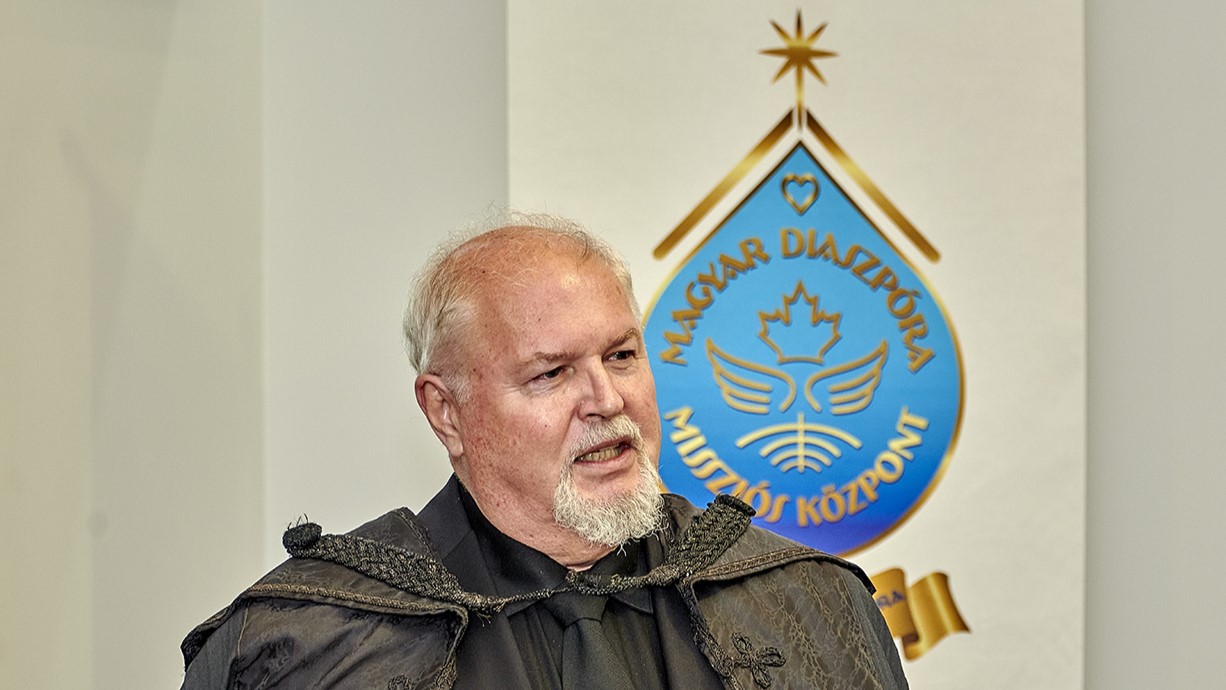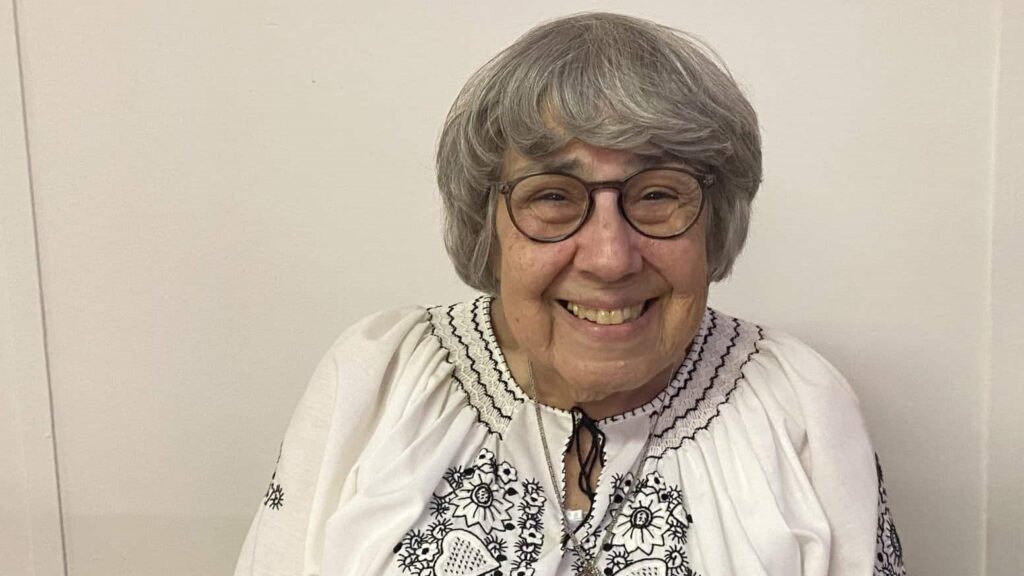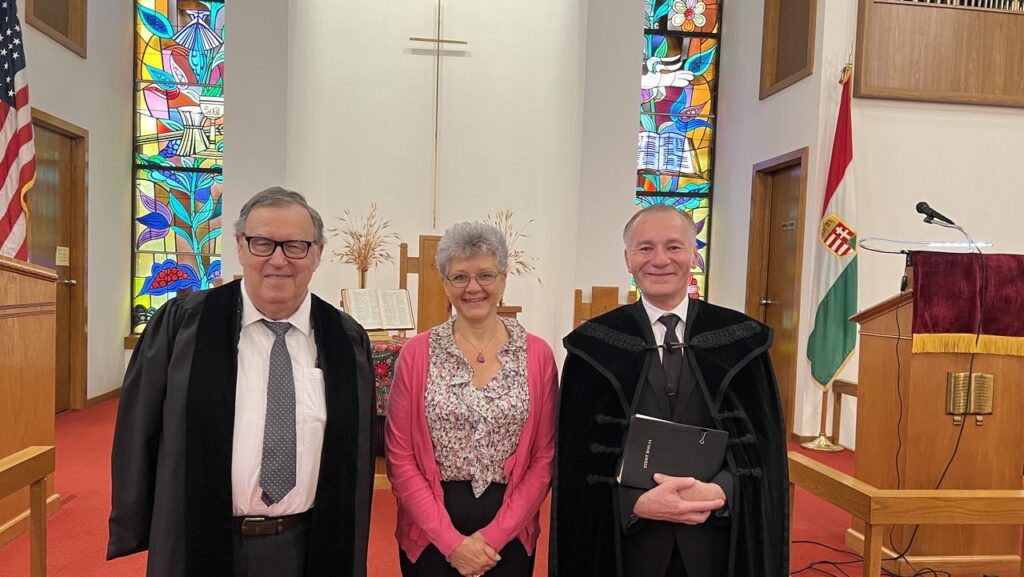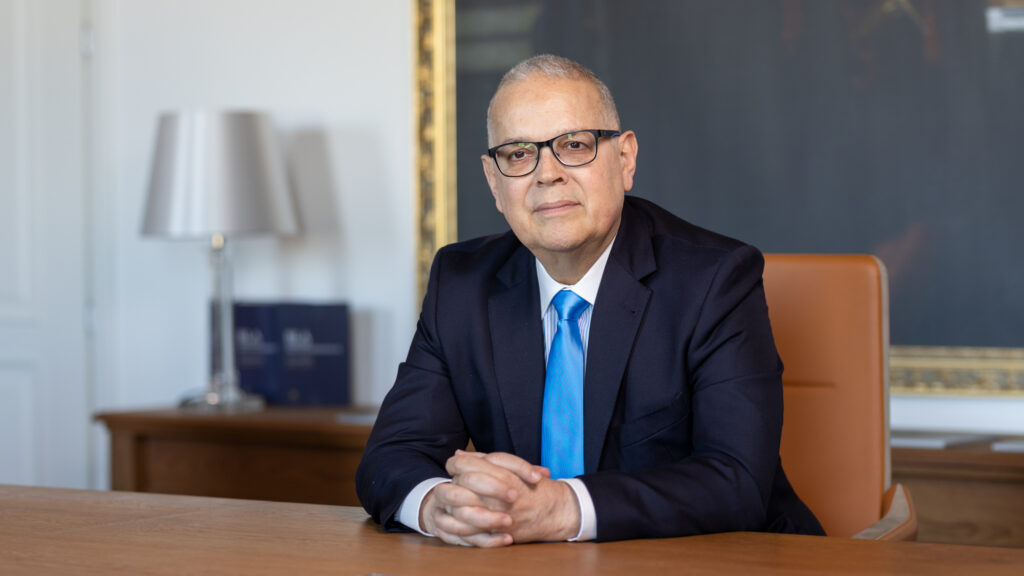This is an abridged version of the interview first published on reformatus.hu.
Zoltán Vass was born in 1954 into a Transylvanian minister’s family. In the 1980s he left Transylvania for Western Europe but returned home to be with his newborn son. In due course, he set out again to America, initially to New York, then Hollywood, ultimately settling in Toronto 29 years ago as the minister of the First Hungarian Reformed Church, which will be 95 years old next year. He also serves on the Board of the Hungarian Diaspora Council.
***
Was it a family expectation to follow your father’s vocation?
I was born in the village of Hegyközcsatár near Nagyvárad (Oradea, Romania). The church was my home, I grew up in it, I helped my father with everything from ringing the bell to posting the hymn numbers. Given my academic results, my parents considered a variety of careers to choose from but ultimately, I chose to become a minister. The choice came to me simply and naturally as one born into God’s family where I grew up and felt at home, never doubting my choice over these many years. Not long after my birth, my father became a minister at Apátkeresztúr (Crestur) in Bihar County. We lived there until I was five or six years old. Then my father was invited to Tenke, a small spa town that was purely Hungarian until Romanians from the surrounding area started to move in. I went to a bilingual school and high school, then to study theology at the university in Kolozsvár (Cluj). We received such a solid foundation there that when I later studied theology at Princeton, New Jersey, I struggled more with learning the general language than the professional language. Being well grounded in all aspects of theology, I could discuss any topics with confidence, albeit initially with broken English.
After completing the four years in Kolozsvár, my professors encouraged me to continue my studies in Szeben (Sibiu) in German. I graduated in theology in 1979 and I was ordained in 1982. First, I was an assistant minister in Nagyvárad for nine months. Then for three months in Bélzerind (Zerindu Mic), a village along the Fehér–Körös River, where people got along well as a tight community without outside interference. I became very fond of them during my short stay. Pusztaújlak (also known as Körösújlak; Uileacu de Cris), a Hungarian village 20 kilometers from Nagyvárad, inhabited mainly by members of the Reformed Church, followed for eight years.
How and when did you come to America?
When my mother-in-law remarried in the U.S., I applied for a passport to visit her. Since I had already returned from a trip to Algeria (and Western Europe), where I had visited my sister’s family, and my wife had also returned earlier from visiting her mother, the communist authorities chanced that I wouldn’t defect while my family remained hostage. Even so, I had to wait for almost a year since my bishop was reluctant to give his consent. I was afraid that the Securitate—the secret service in Ceaușescu’s communist dictatorship—could at the last minute take me off any plane for any reason. Even in Frankfurt, Germany when I transferred from the Romanian flight to Lufthansa, I was worried whether they would detain me having second thoughts about my trustworthiness as a Hungarian minister. Because of this, I didn’t dare talk with anybody about my plans. Nevertheless, as I boarded the Bucharest-bound flight in Nagyvárad, my father said to my mother: ‘He won’t come back.’
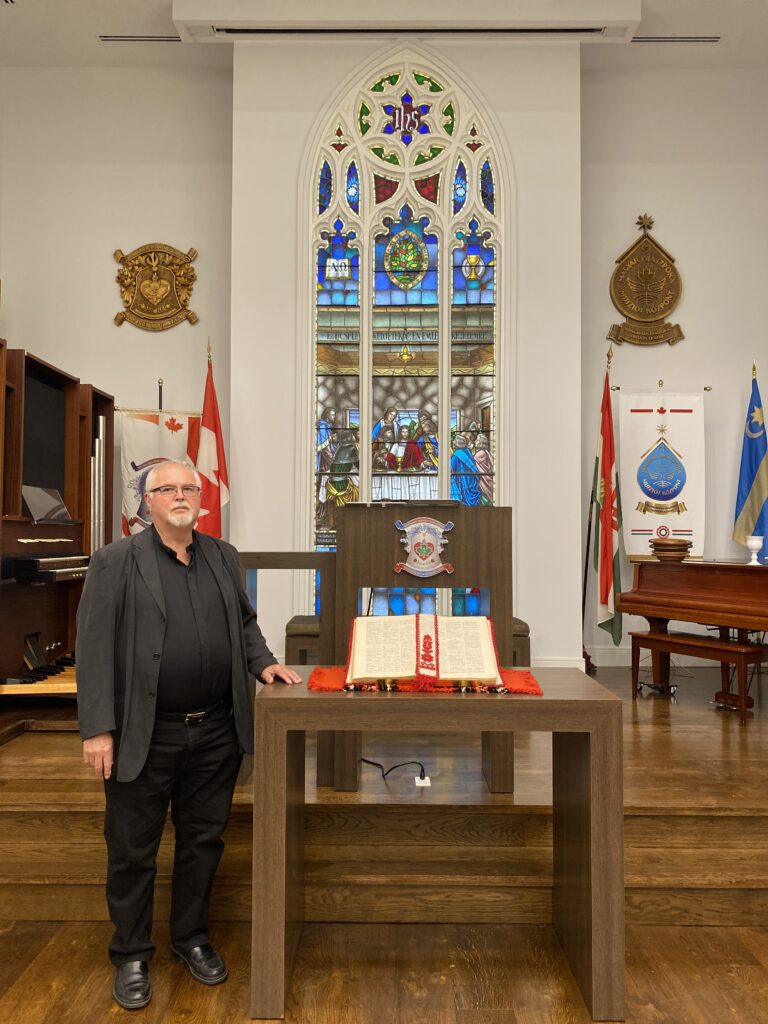
What were your first impressions of America?
My first trip to New York was to the 82nd Street Hungarian Reformed Church. I preached there on Palm Sunday, then I served there as an associate minister for almost two years. In the meantime, I studied at Princeton Theological Seminary and earned my master’s degree. Then I was accepted to the doctoral program, where I spent a couple of years, and continued my studies in Toronto. The years at Princeton were very beneficial as I got to know the local scientific community during the course of my immersion in theological studies.
What prompted your next steps?
The agreement with the aging minister in New York was that he would retire, and I would take over the congregation, but he changed his mind. I moved to the First Hungarian Reformed Church on 69th Street. Being good friends with the minister there, we signed up together for a three-year course preparing for hospital chaplaincy. The knowledge I gained there proved invaluable, especially in building relationships. A hospital chaplain establishes rapport with strangers, making it difficult to come to terms with it when one dies. I had an interesting conversation with a Lutheran pastor who said to me that he was taking the course because he could never close his parish door. Thinking this through, I concluded that this approach gave rise to the maxim that the minister is invisible during the week and incomprehensible on Sunday. In contrast, my door will always be open. I have a single phone number where I am always reachable, and I take special care to participate in the life of the congregation. This approach has time and again proven itself very rewarding.
From New York you went to Hollywood, California and then to Toronto, Canada. Why?
While in New York, the minister’s position in Hollywood became vacant. There was a minister there for 29 years, who was very ill during his last ten years. I found a very strange group of church elders there, who took over the authority from the sick minister and ran the church on their own will. They did not like the fact that their reign came to an end with my arrival, but that’s how it usually happens when we take control and clean the house. Those three years were the most productive period of my entire career as minister. The Hollywood congregation with 70–80 people regularly attending services in the renovated church was quite happy with me and they did not want to let me go. But when the minister’s position in Toronto became vacant, I announced my departure. Toronto’s church was comparatively huge and beautiful, housing the largest Hungarian speaking congregation in North America with 120–150 people regularly attending each service—which is a huge number in the diaspora. I introduced myself in December 1993 by speaking at a social event on Saturday night and preaching on Sunday. I was invited to preach for a call in February 1994 as an official candidate for the position. Elections followed with 16 candidates as I recall, that was reduced to a shortlist of three with one dropping out before the final ballot. We Protestants are competitive to the bitter end…
Having won the position, you have been in Toronto for 29 years. How do you see this long period of time?
Yes, I will be marking 30 years next year and I am pleased the years have passed without significant conflicts. Of course there were disagreements, but they were all surmountable. As soon as I came here, I started to work vigorously: there was a youth group, starting with Sunday school and all kinds of musical and other events. This is a more conservative congregation, initially unsupportive to cultural content, but after a while they opened up and well-known artists, actors, and musicians visited us here as well. I was younger and came up with all kinds of new ideas. We held modern services, including one Christmas service featuring rock music. In 2004, we celebrated our 75th anniversary in a beautiful venue, where Bishop László Tőkés was our guest of honor, and Miklós Varga—a famous Hungarian singer—performed. We commemorate every major anniversary, especially of our founding in 1929 usually at the Hungarian Cultural Center. Next year, we will be celebrating the 95th anniversary of the founding of the church. I will be 70 years old and slowly getting ready for retirement.
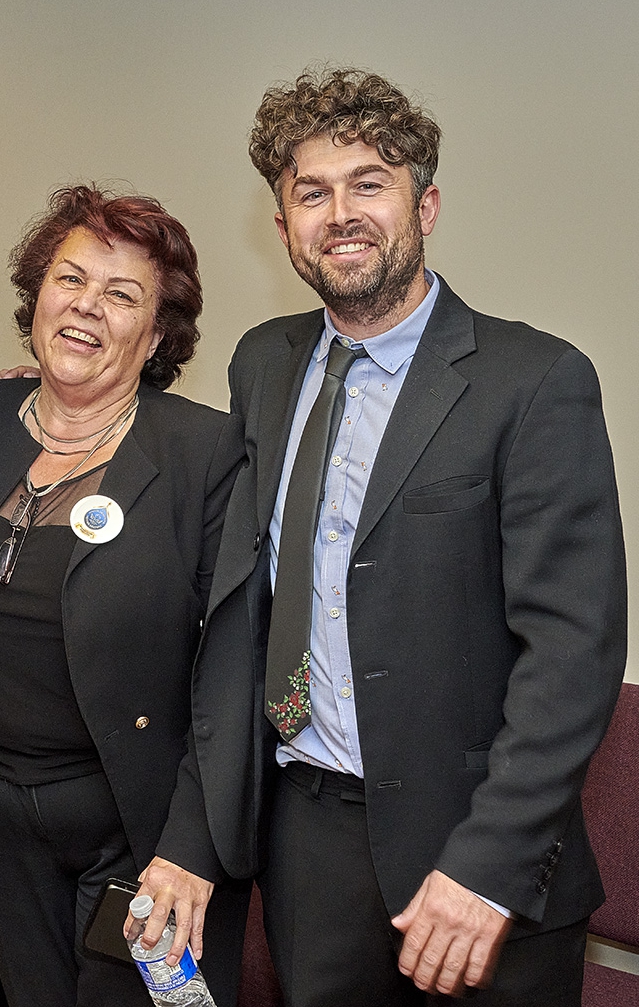
Before we talk about the future, let me ask: when did your family join you from Transylvania? How did your wife fare with life in immigration?
I kept in close contact with my family. They followed me to New York in March 1990 (shortly after the Ceaucescu regime had collapsed). Our son Gergely was born in February 1982 and was five years old when I left, so we missed a few years. Our daughter, Viktória, was born in Los Angeles in 1993. Jozefina stayed home with the children for a long time. She started working in Toronto, first as an administrator at a Montessori school for twenty years, then at another education center for ten years. She is now retired but she won’t be resting for long, because we’ll soon be launching the Kodály Method Music School and she’ll be the director there. It will function as an after-school program, with teachers from the Royal Conservatory, and a KCSP (Sándor Kőrösi Csoma Program) scholar/teacher who has taught this method in Beijing for eight years. I want to build this before I retire, and I want to pass on a well-functioning school to my successor.
Who is expected at the school and who will maintain it?
Given that the Kodály method is well known in Chinese and Japanese cultures, apart from Hungarians we will mainly target Canadians of Chinese and Japanese descent, and it’s likely that they’ll make up the majority of the students. The school will belong to the Hungarian Diaspora Mission Center, which, in addition to the church, will house several different organizations: the music school is only one of them, but there will be a sports center too. The locker rooms have already been built and there is a soccer field close to us, which is suitable for us to start an athletic program. However, this requires more time and special organization, as we have moved here only recently having sold our previous church building in 2018 to buy an old school building, which had to be fully remodeled. We applied to the Hungarian government and duly received a grant to carry out the remodeling of the building, which incorporates the relocated church, an important bastion of the Hungarian Diaspora, completed in October of 2022. Of the many people who supported our cause, I would like to highlight the support of former President Katalin Novák, who presided at the inauguration of the Hungarian Diaspora Mission Center and Bishop Zoltán Balog, who dedicated the relocated church incorporated in the building.
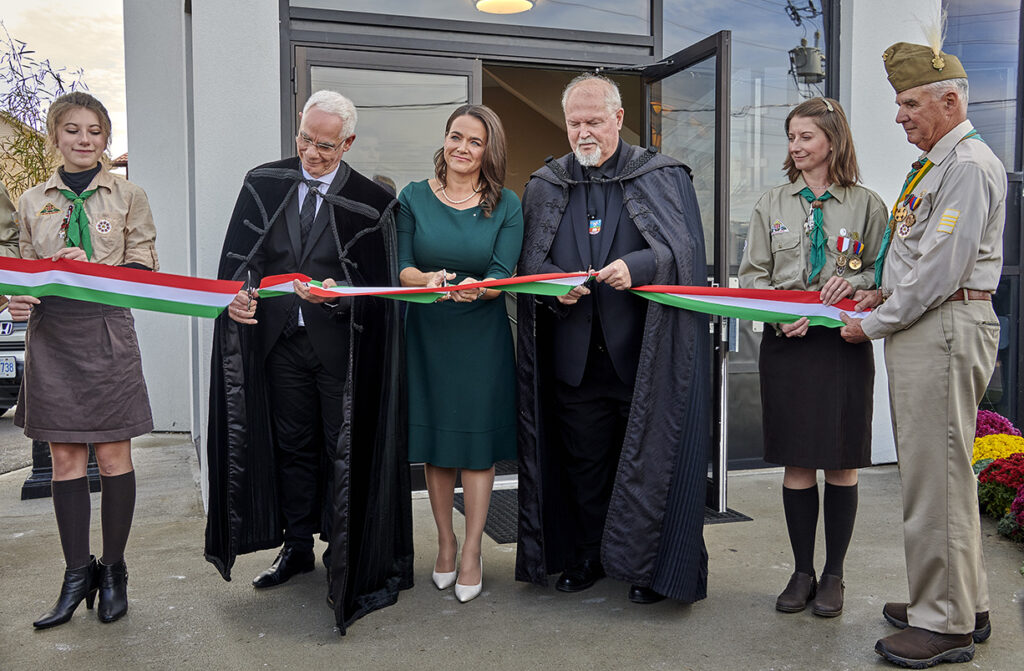
Why was all this necessary?
I foresaw problems 15 years ago as the generation that has maintained that big and beautiful church started to dwindle, and the new generation will not fill the growing void. I announced my concerns to the congregation, repeatedly explaining to them the urgency to relocate while we still had the strength to act. I encountered a lot of resistance, especially from older people whose lives were indelibly vested in the old church building, with an immense nostalgia and I couldn’t fault them for that, but with all the respect the maintenance and upkeep were becoming unsustainable. There was a very stormy assembly meeting where they accused me of giving up the old building for a new one that was merely a vague concept. In the end, the congregation voted to relocate with a majority of more than two-thirds, but I still had to pacify the elderly. This was in 2016 and we were able to present the new location at another meeting in 2017. It took almost a year to complete the sale and purchase. Finally, in 2021, we opened the new church to the community.
How big is this community? Is it Hungarian or rather bilingual? In the U.S., the Reformed congregations are mostly bilingual.
On our community list, there are approximately 150 of us, which is always changing in such a big city. After the Covid pandemic, our numbers shrank to approximately 100. Toronto is a big city; sometimes newcomers show up, which is always encouraging. The stable congregation ranges between 70–100 souls. In regard to language, let’s not forget that French is the other official language here, and this is a huge help for ethnic groups to keep their own language. Bilingualism is not a problem here. The U.S. is different, much more of a melting pot. We mainly have Hungarian services here, with very few bilingual services; only if a family requests it specifically for a baptism, wedding, or funeral. On larger holidays, if I see English-speaking family members, I turn to them in English, so they also feel included in the worship.
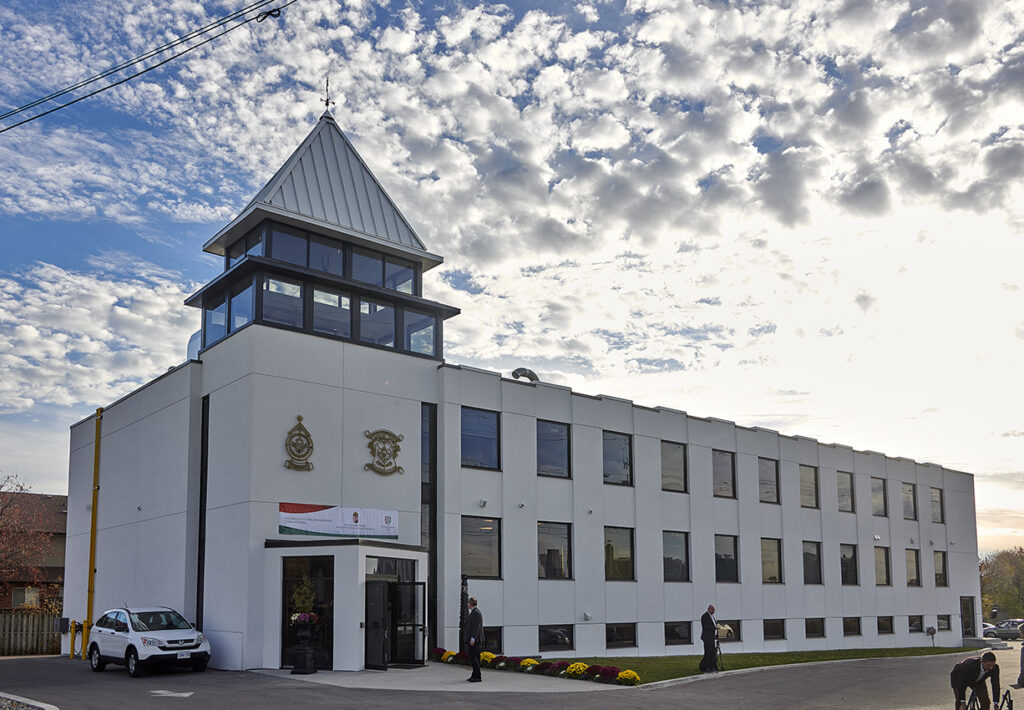
You said, ‘We are unified by our disagreements.’ What did you mean?
I was a board member of the local Hungarian Culture Center for a long time. There were serious disagreements between different generations and factions. We worked together a lot, but many of us argued about everything. However, in crucial situations, we were able to get together. Also, although leadership was often second guessed or undermined just to showcase independent thinking, a well explained good cause garnered solid support. We Hungarians can be very distant from each other, but our hearts keep us together.
Does the generational conflict mean that the older people don’t want to let things slip out of their hands? How did you handle that?
Yes, in such a community we have to cooperate with many people of different abilities. Conflicts often arise from misunderstanding and lack of information, but when they slowly understand what the actual situation is, it is possible to work together with the elderly. As leaders, our task is to ensure that they also see the path that we see ahead. But this must be done patiently and in such a way that they feel that it is theirs. Because otherwise they would say: the minister goes ahead, he doesn’t even ask us. Often this is the reason for misunderstandings, but we, the ministers, must solve this, and if necessary, examine the issues back and forth several times. We have to share, discuss, and debate. It is tiring, there are difficult periods, but we also have to go through the paths that we don’t like. It’s the result of patience that my almost thirty years of service here has been largely conflict-free. At the beginning, we had 18 elders in the Session, who said no to all my suggestions. After a few occasions, I told them: ‘It doesn’t work this way, we should move forward somehow. My next proposal can only be voted down if an alternative is offered. If it is better than mine, then we will go with it, but if not, then we stick to my original proposal.’ It broke the ice. I was able to be patient also regarding the relocation of the church—I knew it was the right decision.
How did you become a member of the board of the Hungarian Diaspora Council and a member of the Hungarian Permanent Conference (Magyar Állandó Értekezlet, abbreviated as MÁÉRT)?
Before the possibility of a simplified acquisition of Hungarian citizenship was announced, I applied twice unsuccessfully. On 2 January, 2011, on the first day when this possibility became available, I took my family to the Hungarian embassy in Ottawa to hand in our papers. I was proud to be the first Hungarian in North America to become a Hungarian citizen in the framework of the new simplified procedure, but I knew that others wouldn’t drive 500 kilometers for it. Anyone who has a Canadian passport in their pocket, even if they are good Hungarians, will not spend a day or two making the effort. That’s why I invited the embassy to us as a ‘mobile consulate’ for which I’d provide the venue and equipment. At first, they refused so I also asked the authorities in Hungary to investigate whether there is such a possibility, because if we really want to have new Hungarian citizens in Canada, they must do something about it. With their help, I finally succeeded. I started the process, collected the names, organized the visits; they just had to come and seal the documents. That’s when I became part of the Diaspora Council, perhaps because they appreciated what I had done. The board members of the Hungarian Diaspora Council are automatically members of MÁÉRT. In my first speech there, I confessed: I have four passports, but the most valuable is the one I received last: the Hungarian one, which means more to me than anything else because I had to fight for it, whereas I received the others automatically. This touched the audience very much, just as it did when I added: the church will be the last place where the lights will be turned off for the Hungarians in the diaspora.
Read more Diaspora interviews:

